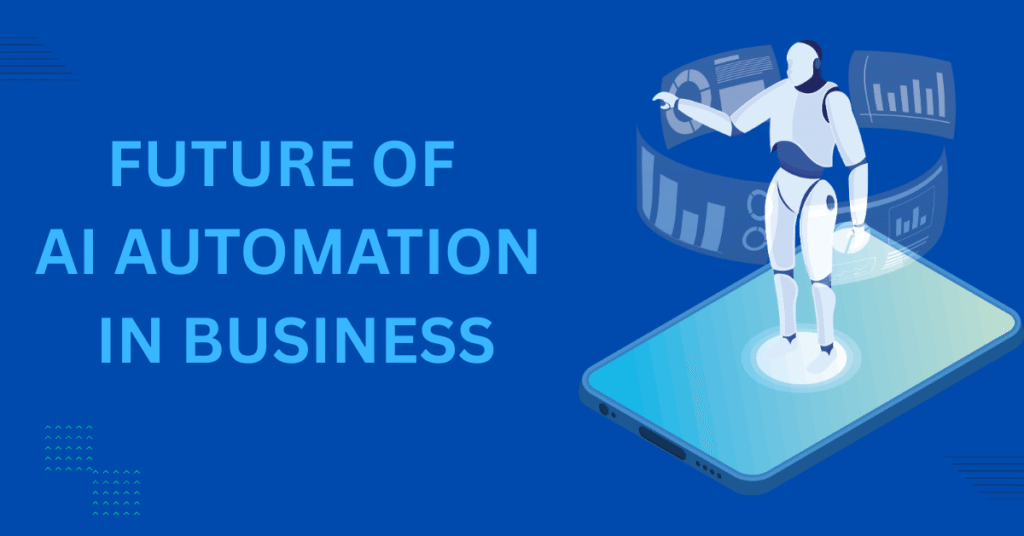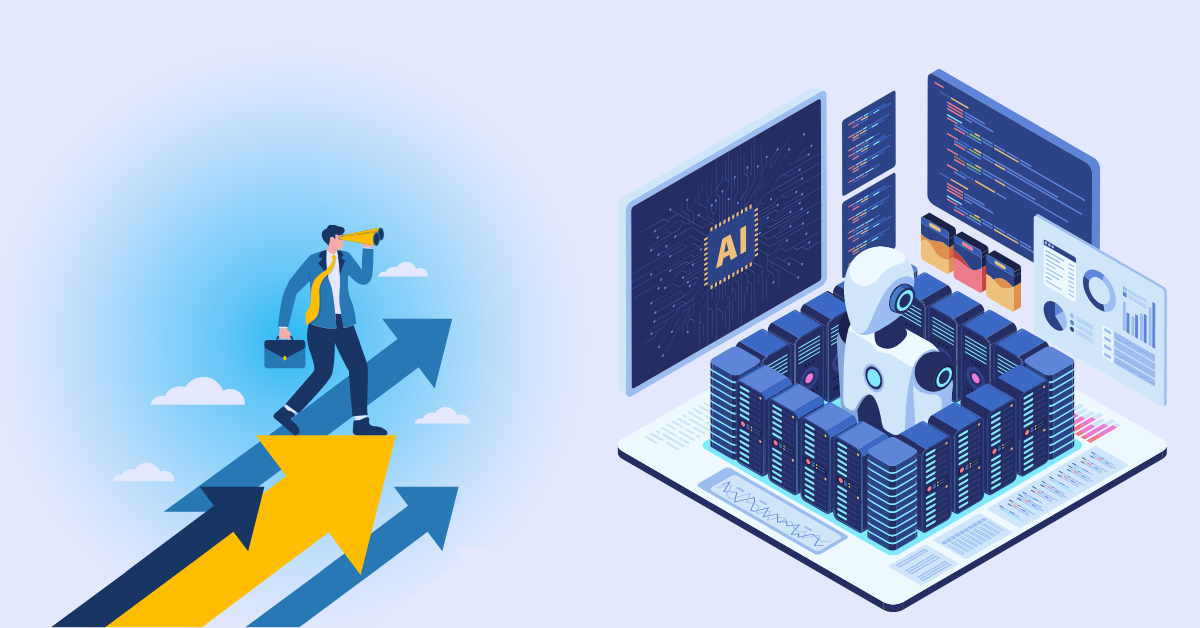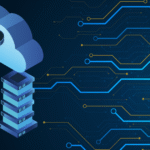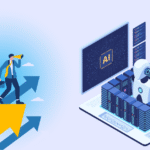Artificial Intelligence is no longer a topic of the future – it is a revolution that is happening in the present, which is transforming the working process of businesses on a daily basis. With small startups, as well as mighty corporations, companies are welcoming the strength of AI automation to streamline their operations, saving money, and offering superior customer experiences. Yet, just what is AI automation, and how is it being applied in the real world? Here, we will divide it into bits, examples, advantages, issues, and trends of the future to enable you to have a clear vision of how companies are indeed applying AI automation in 2025 and far beyond.
What is AI Automation?
In a nutshell, thus, AI automation is the merger of automation technology with artificial intelligence. Traditional automation is based on strict, rule-based instructions-think of software that automates the sending of invoices or reminders. AI takes it a step ahead by including intelligence, learning, and adaptability into it. With AI automation, businesses don’t just automate repetitive tasks – they create self-improving machine systems that are able to make decisions, adapt when faced with new circumstances, and optimize performance without constant human supervision.
Why Businesses are Turning to AI Automation
Businesses today are faced with mounting issues: increased costs, labor shortfalls, changing customer expectations, and competition. Solutions provided by AI automation include:
- Cutting down on repetitive jobs,
- Improving decision-making with real-time data
- Delivering individualised customer experiences
- Operating 24/7 without breaks
- Reducing human error and improving accuracy
In short, AI automation is not just about efficiency – it is about getting a competitive advantage.
Real World Uses: How Businesses Are Using AI Automation
Let’s take a look at some examples of how businesses from various industries are using AI automation at the moment.
Customer Support using AI chatbots
Customer service is one area where businesses looked to AI first. Instead of letting customers wait on hold, companies use AI-powered chatbots to:
- Instantly answer frequently asked questions
- Offer round-the-clock support on multiple platforms
- Recommend products or services on the basis of user history
- Handle returns, refunds, and complaints
For example, e-commerce shops such as Amazon have AI chatbots to assist customers 24 hours a day, which decreases the need for human agents.
AI Use of Digital Marketing and Sales
Marketing is no longer guesswork- it’s data-driven. Businesses use AI to:
- Customer behavior analysis – Analyze customer behavior in real time
- Automate your email marketing campaigns
- Personalize advertising and website content
- Score leads & predict customer conversions
Sales teams can also benefit from AI-powered call relationship management (CRM) tools, which will forecast revenue and automate outreach.
A SaaS company, for example, can use predictive scoring of leads to concentrate only on organic leads to qualify the prospects that will bring high value, making sales a more efficient process.
Human Resources and Recruitment
Hiring is one of the most time consuming for HR teams. Businesses now use AI to:
- Automatically check resumes for particular skills
- Conduct AI-based video interviews
- Predict outcomes from data to predict a candidate’s future performance
- Automate onboarding and training
Platforms such as HireVue utilise AI to analyse interview responses, reintroducing hours of manual work for recruiters.
Supply Chain and Logistics
Managing supply chains is complicated and costly. AI automation aids businesses to:
- Predict demand and effectively manage inventory
- Automate warehouse operations with robots
- Optimize Delivery Routes In Real-time
- Detect risks such as delays or disruptions early
Amazon’s warehouse robots are a famous example–AI confirms packages are picked up, packaged, and shipped faster than ever.
Finance and Accounting
With finance, accuracy is everything. Businesses use AI automation to:
- Automate your invoice processing and payroll
- Analyze financial data to better forecast
- Make sure to conform to regulations
Banks and fintech companies use Artificial Intelligence-based fraud detection systems for spotting unusual transactions on the spot.
Health Care and Medical Services
Healthcare businesses are taking an increasing interest in using AI automation for time-saving and better care delivery to patients. Examples include:
- Automating the scheduling & reminders of appointments
- Helping doctors with artificial intelligence diagnostic tools
- Electrons make health records work
- Making Predictions Using Analytics to Treat Patients
Hospitals are now making use of AI-powered systems that anticipate the load of patients and help hospitals allocate their staff better.
Manufacturing and Robotics
Manufacturing is also another area where AI automation excels. Businesses use AI to:
- Automate assembly line production
- Find quality defects thanks to AIE Systems ‘ artificial vision systems
- Predict the need for machine maintenance
Car manufacturers use robotic arms based on AI to aid in the speed and consistency of production.
E-Commerce, Personalization
Have you ever noticed how stores online know just what you are looking for? There you have AI automation in action. E-commerce businesses are using AI for:
- Personalised product recommendations
- Automated pricing strategies
- Detection of fraud (Online payment)
- Power of Artificial Intelligence Severe Optimized Search
Netflix and Spotify are well-known examples — AI-based recommendation algorithms make users stick around for longer.
Business Data and Analytics
Data is the lifeblood of any modern business, but it’s of no use if it’s not analyzed. The use of AI automation in companies makes them helps:
- Process huge data sets instantly
- Drill down and offer real-time insights through dashboards
- Anticipate consumer trends even before they occur
- Help improve decision-making
Retailers use AI analytics to predict which products will be trending in the upcoming seasons and make relevant changes in inventory.
Cybersecurity & Risk Management
As cyber threats change, businesses look to AI automation to keep them safe. AI helps by:
- Detecting suspicious activity within networks
- Automating response to a possible attack
- Detecting vulnerabilities in real-time
- Mitigating data breach risks
Cybersecurity firms such as Darktrace are also layering artificial intelligence that allows them to monitor the network and respond to security threats in real-time.
Benefits of AI Automation in Business
The implementation of AI automation has huge benefits for businesses:
- Reduced costs – Lower labor costs and operational costs
- Increased productivity – The AI systems will work 24/7
- Consistency – Zero human errors (e.g. repetitive tasks)
- Smarter decisions – AI analytics
- Faster scaling – Businesses expanding without excess manpower
Challenges Businesses are Facing with AI Automation
Of course, there are hurdles to that as well. Businesses often encounter:
- High start-up investment costs
- Fear of job displacement: Employee resistance because of job displacement fears
- Data privacy and compliance issues
- Problems of technical integration
- Need for reskilling of employees
Forward-thinking businesses are looked at where innovation balances the use of AI automation with human involvement to develop sustainable growth.
The Future of AI Automation in Business
The future is obvious: artificial intelligence (AI) automation will become more accessible, affordable, and necessary. Emerging trends include:

- Hyper-automation – Combining a range of AI tech into seamless workflows
- No-code AI platforms – Enabling non-techs to create AI automation solutions
- Human-AI collaboration – Teams collaborating and working hand-in-hand with intelligent systems
- Ethical AI – Ensuring fairness, transparency, and accountability
- Adoption by SMEs – Small businesses making the transition to AI with affordable AI solutions
For businesses that can quickly adapt to these trends, it will be the ones that are ahead of the competition.
Final Thoughts
The utilization of AI in automation is not an option any longer, but a formidable instrument that is leading to the growth and streamlined functioning of industries through more intelligent decision-making. Procedures like customer service, marketing, finance, logistics, etc. You get the idea, the advantage of adopting AI in business – Companies already enjoy the fruits of the AI integration into their day-to-day operations. Although issues like cost and adaptation of workforce also need to be surmounted, long-term benefits greatly exceed the risks that managers have to deal with. At this stage, companies that adopt AI are among the organizations that acquire an advantage, and are looking forward to the time when AI will be implemented in any business and become standard. It is not whether AI will transform business; it is a matter of how soon your business will be in a position to adapt and leverage the complete potential of AI.











